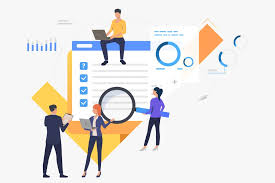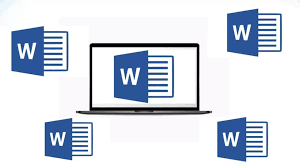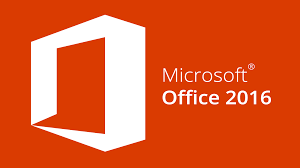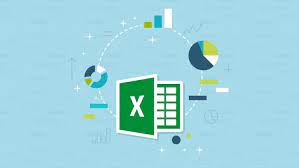Description
About the course
Professor Aradhna Malik, a faculty from the School of Management at the Indian Institute of Technology, Kharagpur has designed this for the management aspirants. In this course, you will be introduced to human resource management, staffing/recruitment, which includes job analysis and design, human resource planning /recruitment, employee testing, and selection, interviewing candidates. After that, you will learn about performance management and appraisal process, Training and development, career management, compensation management, pay for performance and incentives, benefits and services, employee relations. The course will conclude with strategic human resource management and HR scorecard.
Learning Outcomes
After completing this course, you will be able to:
- Understand the fundamentals of human resources and managing these human resources.
- Create your own strategies for managing the resources effectively and implement them in your own company.
- Boost your hireability through innovative and independent learning.
Target Audience
The course can be taken by:
Students: All students who are pursuing any professional management courses.
Teachers/Faculties: All teachers/faculties who wish to acquire new skills or improve their efficiency in Human Resource Management.
Professionals: All working professionals from management functional area.
Why learn Principles of Human Resource Management?
Human resource management is a function in an organization which focuses on recruiting, managing and directing employees who are working in the organization. Human Resource Management deals with issues related to compensation, performance management, organization development, safety, wellness, benefits, employee motivation, training etc. Human resource management plays a strategic role in managing people and the workplace culture and environment. If effective, it can contribute greatly to the overall company direction and the accomplishment of its goals and objectives.
Human Resource Management has a great scope in India. With the increasing amount of youth population in India and increasing job opportunities in IT & various other sectors, the demand for young and talented people has increased to a greater extent. The scope of HR is great because of the existence of many new HR related demands such as advanced performance appraisal systems, Human Resource Information System, job satisfaction, employee involvement, corporate governance etc.
Course Features
- 24X7 Access: You can view lectures as per your own convenience.
- Online lectures: 20 hours of online lectures with high-quality videos.
- Hands-on practice: Includes source code files for hands-on practice.
- Updated Quality content: Content is latest and gets updated regularly to meet the current industry demands.
Test & Evaluation
Each lecture will have a quiz containing a set of multiple choice questions. Apart from that, there will be a final test based on multiple choice questions.
Your evaluation will include the overall scores achieved in each lecture quiz and the final test.
Certification
This course is free and it has no certificate.
Topics to be covered
- Module-01
- Who is a manager, a line employee and a staff employee?
- What is the history and evolution of HRM?
- How do we define HRM and how is it different from personnel management?
- Can we have a detailed study on the HRM system and also what are the primary responsibilities of the HRD?
- What are the challenges of HRM?
- How can one plan and implement strategic HR policies and how can one select HR strategies to increase performance?
- Module-02
- What are the common questions that HR Managers try to answer?
- What are business processes, BPR, job design, job analysis, job description and job specification?
- What are workflow and workflow analysis and why is it important to study job requirements?
- What are the different types of organizational structures?
- What are process based organizations and how do you explain job characteristics theory?
- What are some of the legal issues related to designing HR strategies? Also how can one study job requirements?
- (Cont'd) Job Characteristics Theory
- (Cont'd) How to study job requirements?
- How to design jobs and what are the approaches to job design?
- What is job analysis? What are the methods of gathering job information? And why must one analyse jobs
- What are the techniques of job analysis?
- What are some of the advantages and disadvantages of job analysis methods and how are they different from workforce planning? Also what are the foundations of workforce planning and what activities comprise it?
- Module-03
- What are the steps in conducting a job analysis?
- What are job descriptions and its elements?
- What is flexible workforce and what are flexible work schedules? Also what are the factors affecting the forecasting of workforce demand?
- What is the hiring process and what do you mean by recruitment?
- How to develop recruitment policies, what makes internal and external labor markets different? And what are the sources of recruitment?
- How do you evaluate hiring, what is workforce utilization, recruitment process and diversity oriented recruitment?
- How to manage recruitment operations and what is on the other side of recruitment?
- What are some of the challenges in the hiring process?
- What are the organizational considerations in staffing decisions?
- What are some of the screening and selection methods?
- What do you understand by employment interview? What should one ask and not ask in an interview?
- Module-04
- What is employee orientation and on-boarding, and what is the process of employee orientation?
- What is organizational socialization?
- What do you mean by socialization process and how can you ease a newcomer's assimilation into the organization?
- What is performance management and what is the role of HR Manager in managing performance?
- Whose responsibility is the management of performance and how is it in practice?
- What is performance appraisal?
- What are the uses of performance appraisal?
- What are the aims of performance appraisal? Also how do you identify performance dimensions?
- How do you define the goals & efforts of employees and assess objectives?
- What are the concerns regarding performance appraisals?
- Explain the terms: values, attitudes, behaviors, traditional performance appraisal and 360 degree feedback.
- What are the typical employee reactions to performance appraisals and how can performance be appraised?
- Module-05
- What are performance management systems?
- What are the aims of appraisals?
- How do you identify performance dimensions and define employee's goals & efforts? Also how do you assess objectives?
- What are the steps for appraising performance?
- What are some of the requirements of an effective appraisal systems?
- What are some of the performance measurement methods?
- What are Behaviorally Anchored Rating Scales (BARS)?
- What is MBO and what are its benefits?
- What are balanced scorecards (with example) also state some criticisms of it?
- What are the advantages and disadvantages of appraisal tools? And how do you provide feedback on performance?
- Module-06
- How do you manage poor performance, appraise it and provide feedback on the same?
- What are appraisal interviews and how are they conducted? And what are performance feedback interviews?
- What is the training process?
- What are the key issues and challenges in training?
- How can you make the learning (training) meaningful?
- How can you make skills transfer easy?
- What are some of the training trends? Also what are the structural issues in training delivery?
- What are the characteristics of effective training practice? And explain the training paradox?
- How can you design training programs?
- What is meant by performance analysis and need analysis?
- What is the training needs assessment model, how many types of training are there and how can training programs be developed also how can transfer of training be made?
- Module-07
- What is the training needs assessment model?
- What are the ingredients of skill learning?
- What are transfer of training, team training and training methods? Also how do you select training methods?
- How do you implementing the programs?
- What are the other types of training programs?
- What is managerial on the job training, OTJ management training & development techniques?
- How do you create your own training program and evaluate them?
- Module-08
- What is the definition of career/career management?
- When is there a need for career management systems? Also what are the challenges of career management and planning career?
- What is meant by career success?
- What are the 2 elements of career management?
- How do you select a field of employment and employer?
- How do you know where you are?
- What are the domains of self development?
- How do you develop and advance suggestions?
- What do you mean by career objectives and profile summary? Also how do you focus on career objectives?
- Briefly explain ""Hewlett Packard's Career Self-Management Program""? Also explain how to plan your exit?
- What is proactive career management? And what are the methods of career management?
- What are career anchors, the phases in career development and the challenges of effective career development ?
- Module-09
- What are career anchors? How can you meet the challenges of effective career development?
- What are the ways to rotate job?
- What are the methods of career management?
- What is succession planning and what is the significance of it?
- What are the challenges to succession planning and what are the steps to develop an effective succession plan?
- How can you make promotion decisions?
- What are the methods of managing retirements? And what problems and opportunities to dual career couples face?
- How is it to manage mid-career men, mid-career women and older workers?
- Module-10
- What is compensation?
- How do you design a compensation system?
- What is meant by assessment of equity and how do you determine equitable pay for work?
- What is the criteria for developing a compensation plan?
- What models can be used to ensure equity of compensation? And how do you balance equity?
- How do you strategically integrate compensation plans and business plans?
- How do you explain performance vs membership and job vs individual pay?
- When does the individual based pay system works best? And what are the determinants of pay structure and level?
- Module-11
- What do you understand by pay system mechanics?
- What are traditional job based compensation model? Also state the policy issues that affect job evaluation?
- How do you link internal pay relationships to market data? And how can you develop a pay structure?
- What are compensation tools, the trust gap and the changing philosophies regarding the pay systems?
- Module-12
- Explain the trust gap, the changing philosophies regarding pay systems and the changing salary administration systems?
- What are the components and objectives of organizational reward system?
- What are the alternatives to pay systems based on job evaluation?
- Explain in detail the policy issues in pay planning and administration?
- What are the requirements for performance incentives and incentives for executives?
- Module-13
- What are employee benefits and indirect compensation? Also why are benefits important to employees?
- What are contributions, coinsurance, copayment, deductible and flexible benefit programs?
- What are the different types of benefits and benefit strategies?
- What are some of legally required benefits?
- What do you mean by worker's compensation?
- What is meant by unpaid leave and voluntary benefits? Also how can healthcare benefits be managed?
- What is meant by insurance plans, paid time off and employee services?
- Module-14
- What is meant by paid time off?
- What are employee separations?
- What are the different types of employee separations and the costs involved in it?
- What do you mean by retirement benefits? And how do you handle and implement a layoff?
- How can you handle survivors of layoffs and what are the alternates to layoff?
- What is job sharing and how can you administer benefits? Also what challenges come with flexible benefits?
- What is unemployment insurance and how do you manage it? Also what are the benefits of communication?
- Module-15
- What differs business ethics from the law? Also define morality, ethics and ethical theory.
- What is the relationship between morality, ethics and ethical theory? And why is business ethics important?
- What are the differences in business ethics across organizational types?
- What are the ethical impacts of globalization on different shareholder groups?
- What is the link between corporations and business ethics? And what is the role of ethical theory?
- What is the major normative theories in business ethics and explain the example of the analysis regarding child labor?
- Module-16
- What are the ethical aspects of HRM activities?
- What are discrimination and the conflicting strategies for fair employment? Also differentiate between disparate treatment and adverse impact.
- How do you manage discrimination charges? And what are the reasonable accommodation for differently abled employees?
- What are the steps in affirmative action plans and how can one avoid pitfalls in equal employment opportunity?
- Module-17
- What is meant by psychosocial safety climate and psychological health and well-being in the workplace?
- What are work stresses and how can it be managed? Also what are the sources of workplace stress?
- What are the effects of psychological stress in the workplace?
- Explain the stress model. How can management of stress be done?
- Module-18
- What is the meaning of workplace health? And what are the influencing factors?
- What is organizational culture and its influence on health?
- What are WHP programs? Also what are the features of preferred and avoided WHP programs?
- What is meant by amenities, workplace health and well-being? What do you think about safety, health and environment in a workplace?
- Module-19
- What are unions and when do employees join unions?
- How are Indian laws related to industrial relations? And what is meant by labor relations?
- What are examples of union acceptance strategy and union avoidance strategies?
- Can you establish a link between union substitution approach to union avoidance strategy?
- Can you establish a link between union suppression approach to union avoidance strategy? Also how can labor relations process be managed?
- Module-20
- What do you understand by union organizing? And how can labor relations process be managed?
- What is collective bargaining?
- What are bargaining etiquettes, bargaining power and integrative bargaining?
- What are the different types of: bargaining topics and strikes? And what is meant by impasse in bargaining?
- What do you mean by contract administration?
- What are the types of grievances and what are the steps involved in the grievance procedure? How are grievance procedures beneficial and how do unions impact HRM?
- Module-21
- What does internationalization of business mean? And what is international orientation?
- What is meant by internationalization of HRM?
- How can IHRM be developed and international organizations be created? Also differentiate between IHRM and domestic HRM.
- What are the stages in the development of MNEs?
- How do you make the right choice of method for entry into international business?
- What are the factors influencing how MNEs organize for global business? And what are the stages in international involvement?
- Module-22
- What are the institutional context of international business?
- What are the equivalent employment standards as stated by various international organizations?
- What is the link between MNEs and issues in IHRM? And what is meant by extraterritorial laws?
- Can you explain the application of national law to local foreign-owned enterprises?
- What are international labor relations? And what do unions view MNEs to be able to do practically?
- Mention some of the obstacles to multinational bargaining? And what are some of the basic questions to be addressed during global collaborations?
- What are some of the approaches of multinational enterprises and labor relations and state some issues of concern to local union environments?
- (Cont'd) International Labor Relations?
- What is international framework of ethics?
- Module-23
- What are international HR information systems?
- What are some of the problems with international HR information systems?
- Can you mention some of the global HR challenges?
- What are the challenges to IHR functions in evolving multinational enterprises? And what are the opportunities for strengthening international HR?
- What are IHR jobs of the future and what must the IHR department do?
- Module-24
- What is strategic HRM and why is it needed? Also mention some of SHRM's competitive strategies?
- What are the strategic theories of HRM?
- What are some factors that competitive strategy of a firm and HR strategy of a firm are dependent upon?
- Module-25
- What do you understand from the multilevel model of strategic HRM?
- Module-26
- Can you join the dots of strategic HRM in a network world? And state some of the challenges of networked organizations?
- What is meant by networked working?
- What are the different types of networks?
- What are the famous HRM Models in a networked context?
- Module-27
- What are paradoxical tensions in HRM and what are its various categories?
- What are coping strategies and sustainable HRM? Also mention some of the objectives of sustainable HRM?
- What is the sustainable HRM model?
- What are some of the factors influencing the formulation and implementation of HR policies?
- Module-28
- What is meant by result-based approach to HRM?
- What are scorecards and why must you use human capital scorecards?
- What are the criterias for developing effective measures of human output?
- Module-29
- What is the difference between the basic IPO scorecard and the causal chain scorecard?
- What is the HR process scorecard?
- What is the best practices scorecard used for?
- What is meant by balanced scorecard? Can you explain with an example?
- What are the criticisms of a balanced scorecard and how are they used?
- Module-30
- What is the meaning of discipline?
- Why are disciplinary procedures necessary? And what are the basic standards of discipline?
- What is the just cause standard of discipline?
- What is administration of discipline and what are the mistakes to avoid when administering discipline?
- What are the steps for effective disciplinary sessions and what are the contents of disciplinary/grievance procedures?
- Module-31
- How would you handle difficult employees who have a positive drug use test?
- How can you control indiscipline detected during electronic monitoring?
- How can you go about handling office romance, poor performance and poor attendance/absenteeism?
- How do you propose to handle office and employee issues with telecommuting?
- What is the meaning of insubordination and how can you manage it?
- What is meant by workplace bullying? What are the types of workplace bullying and how can you manage it?
- What are the specific strategies to manage workplace bullying? Also how is alcohol related misconduct dealt with?
- Module-32
- How do you calm angry workers when you are the target?
- How can you prevent the need for discipline with HRM using detailed strategies?
- Principles of Human Resource Management - Final Quiz
Note : Parts of this material has been sourced from NPTEL, adapted and modified to adhere to our Pedagogical requirements and uploaded to YouTube for reuse under the same license.





Reviews
There are no reviews yet.